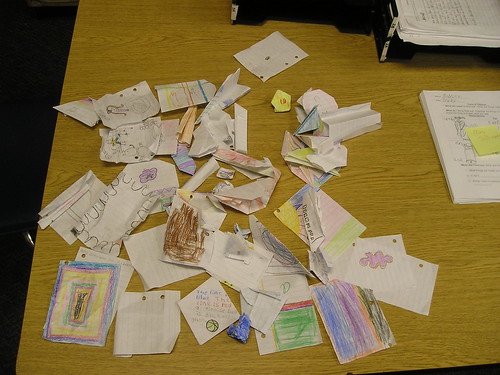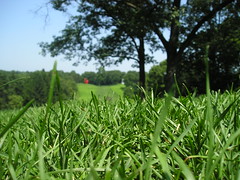The school in which I am employed, as many other schools, rely on fundraisers to gain funding for the many student programs. I agree with this means of obtaining money for programs. However, in the past few years, I have noticed a disturbing trend taking place in our elementary schools. I am not aware if this is taking place everywhere in the country, but in my district it is prevalent.
Waiting for a class to come to science, I was drawn to the gymnasium, where I heard screaming and yelling coming from the mass of students enthralled by a speaker. I knew from a previous announcement that this assembly was for our beginning of the year fundraiser. Standing in the back of the gym, I was shocked.
The man at the helm was about 45 years old and dressed as if he was appearing on MTV. I couldn't help but notice that his rant sounded more like an infomercial about getting rich quick. Every word uttered from his mouth was filled with empty promises of students winning money for selling items to people in their neighborhood. If you sell 10 items, you can pick from envelopes containing amounts of cash. If you sell 20 items, you can get the envelope, and a spin on the cash wheel. If you sell 30 items, you can get the envelope, a spin on the wheel, and a bonus reward. If you are the top 2 sellers in the school, you get all of the previous rewards, and you can stand in a box with cash being floating around you while you grab as much as you can grab.
I had already heard enough. As I watched the teachers in the room roll their eyes in disbelief, and the students yell in excitement, I couldn't believe what I was hearing. If this wasn't enough, it continued with the speaker showing a video. The video contained students and "adults" walking around flashing stacks of money in their hands, students dancing around like adults at a dance club, and stretched limousines parked outside of the school. As the video was playing, the students were so excited about the life they were going to lead after gaining all of this money and fame. It was a surreal moment in a public education facility.
At the end of the assembly, the speaker told the students how they could get free prizes the very next day. He went on to explain that if they took home this form to their parents, filled out 10 addresses of people they know, and returned it to school the next day, they would get 2 free prizes. What a way to generate a mailing list to mail junk to people.
I know that I cannot be the only educator that sees the ill values that we are pouring into the glasses of our students lives. As a parent, I would have issues with this. As an educator, I have issues with this. We are showing the students what we think is important in life. We are showing these students that gaining fame and money and not an education is the goal. There are many other ways to motivate these students. I think we have sunk to a new low level. There will be more to come on this topic...






